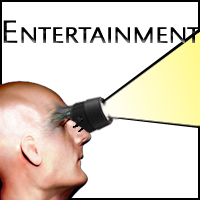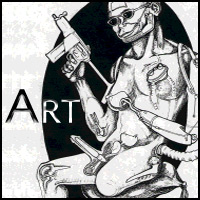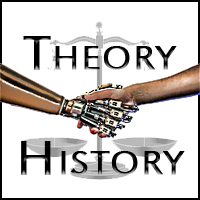|
|
Course Syllabus
Five Credits
Spring 2007
Professor Chris Hables Gray, PO Box 7440, Santa Cruz, California 95061
chris.hablesgray@stanfordalumni.org
Cyborg Society: Myths, Realities, Choices
CROWN 80J, Sec. 1 (no.: 64504) (ID: 105535)
Thursdays, 2-3:45, Crown 202
Course Description: An interdisciplinary research seminar to examine the content and methodologies of the emerging field of cyborgology. Drawing on such fields and disciplines as the social studies of science and technology, anthropology, sociology, philosophy and informatics the course will include discussions, joint research, guest cyborgologists, and ongoing examinations of cyborg theories, art and science.
Requirements/Evaluation Criteria: Active participation in discussions. In class presentations. A group report on one of the books from the supplemental bibliography. A significant research contribution to the class project of mapping the emerging field of cyborgology.
Outline of Course
Week 1. Cyborg Society (April 5)
Cyborgization defined and explained. The sea-change in human tool/machine relationships it represents. Various other framing theories such as Vital Machine (Channel), the 4th Discontinuity (Mazlish) and metaman (Stock). Key theorists such as Bernal, Clynes, and Haraway. The idea of the Cyborg Society. The field of cyborgology.
2. Inventing and Manufacturing Cyborgs (April 12)
An appraisal of the current state, and near future, of the key cyborgian technosciences, including informatics, genetics, neuroscience, and biology.
3. The Overdetermination of Cyborgs I: Military (April 19)
4. The Overdetermination of Cyborgs II: Medicine/Culture (April 26)
Guest: Prof. Sandy Stone, Director U. of Texas Media Lab.
Evening Lecture by Prof. Stone: Drive By Theory, Merrill Cultural Ct. 7:30.
Reception Crown Provost’s House: (9:00)
5. The Overdetermination of Cyborgs III: The Cyborg Organization (May 3)
Guest: Chuck Piazza, doctoral candidate, TUIU, emerging Cyborg Businesses.
6. The Overdetermination of Cyborgs IV: Play and Sport (May 10)
7. Cyborgology I: Philosophy (May 17)
8. Cyborgology II: Science Fiction (May 24)
Guest: Prof. of English Steven Mentor, Evergreen College.
9. Cyborgology III: Art (May 31)
Guest: Lissette Oliveres, HistCon doctoral candidate.
10. Cyborg Societies of the Near Futures (June 7)
Schedule is tentative. Other guests are quite possible. Research meetings are likely.
Required Reading
Gray, C. H. with Mentor, S. & Figueroa-Sarriera, H. (1995). The Cyborg Handbook. New York: Routledge. (Includes readings from Sandy Stone, Jennifer Gonzalez, Steven Mentor, Donna Haraway, and Chris Hables Gray)
Supplementary Bibliography.
Chorost, M.(2005). Rebuilt: How Becoming Part Computer Made Me More Human. New York: Houghton-Miffin.
Gray, C.H. 2001. Cyborg Citizen: Politics in the Posthuman Age. New York: Routledge.
Haraway, D. (2004). The Haraway Reader. New York: Routledge.
Hayles, K. (1999) How We Became Posthuman. Chicago: University of Chicago Press.
Mann, S. (2001) CYBORG: Digital Destiny and Human Possibility in the Age of the Wearable Computer. Toronto: Doubleday Canada.
Download a copy of the syllabus in .DOC format (Microsoft Word) or in .CWK format (Apple Works).
|











